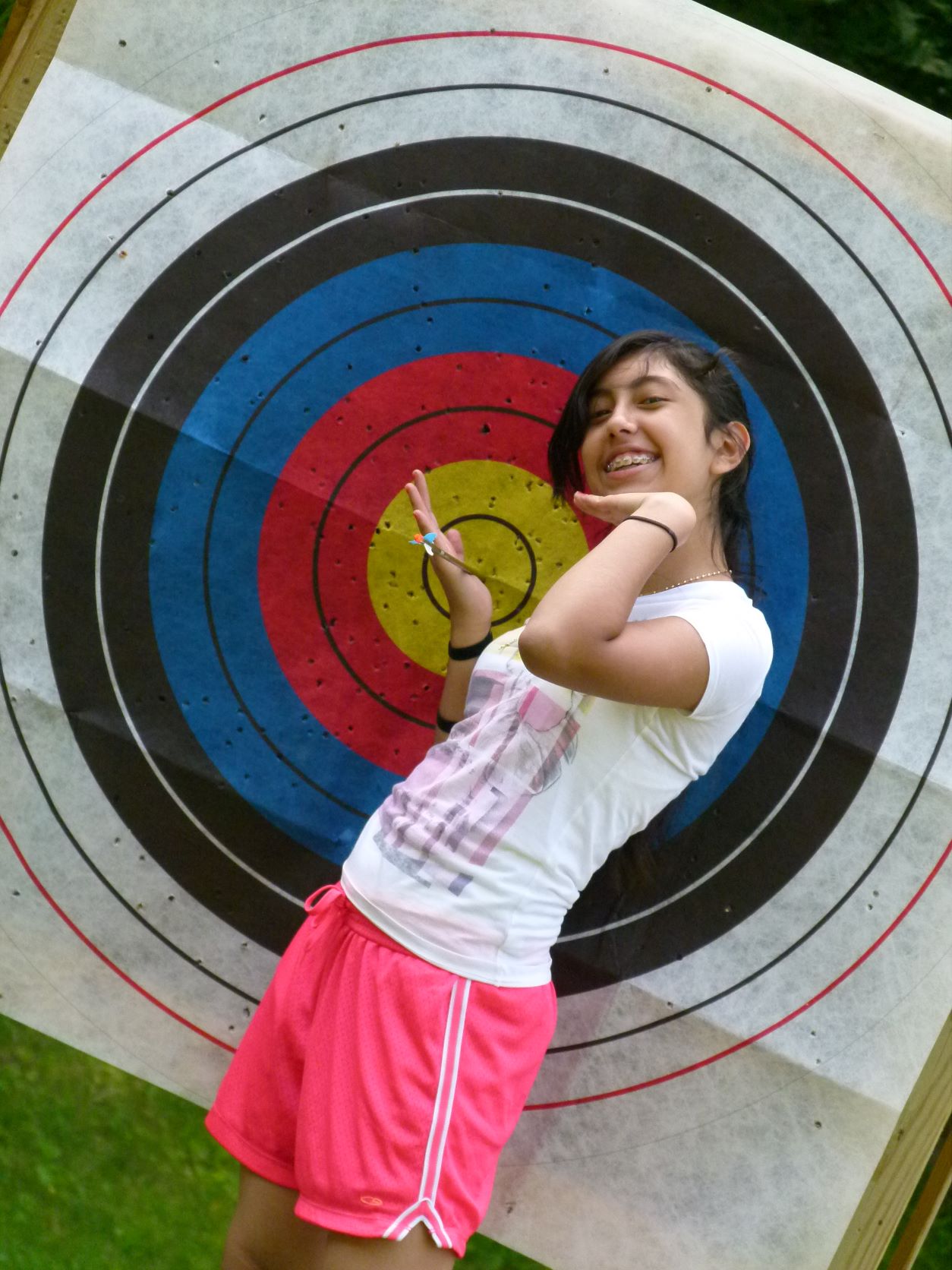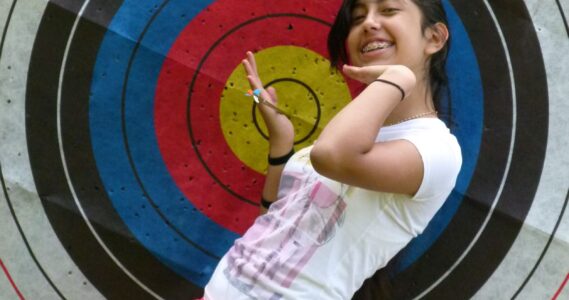Explaining LEAD #6 with Jerome Meeds
When Zach attended his first DLITE training as an awkward, insecure 14-year-old, he said what influenced him most was an older high school guy who said, “You matter.” Having a role model recognize him and treat him as part of the team made an impression on this young teenager. Zach never forgot that lesson. He paid it forward as a Dunrovin program staff member for several years. He carries it with him today as a husband, friend, media manager, and follower of Christ.
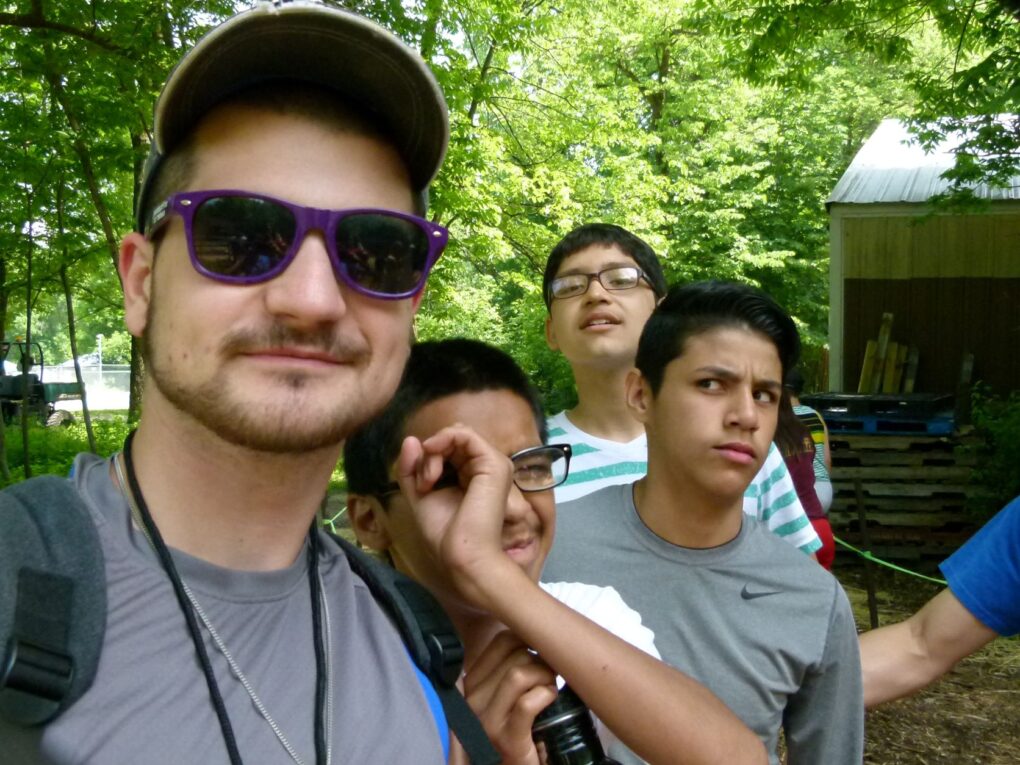
Respect for youth in Dunrovin’s LEAD program (including DLITE) builds on our expectations during their leadership training. We expect much from retreat students, and they expect a fabulous experience at Dunrovin. This relationship builds the foundation on which God can do great things in His young people! With expectant faith, we eagerly and with respect welcome each LEAD participant.
Principles to promote respect:
- Use Godly young men and women to role model vibrant lives in Christ
- Build a no-judgment zone.
- Get early buy-in and commitment to the retreat experience.
- Believe in the students and their inner dignity, strength, creativity, and capability to grow.
- Enjoy one another and put fun into the growth process.
- Accept where the kids are at and invite them into deeper connection.
- Waste no moment.
- Evaluate. Listen. Welcome honest feedback.
THIS IS A NO-JUDGMENT ZONE. Building a retreat experience based on respect begins with a welcoming environment of acceptance. Youth need the freedom to explore new things and encouragement to be authentically themselves while being transformed. This Non-Judgment Zone begins with the Lasallian habit of meeting the students as they are but not allowing them to stay there. Program staff listen to the students, laugh with them, help them, and genuinely care about their wellbeing. Young adults who walk alongside teens have a great responsibility to call forth the dignity and greatness lying inherent within.
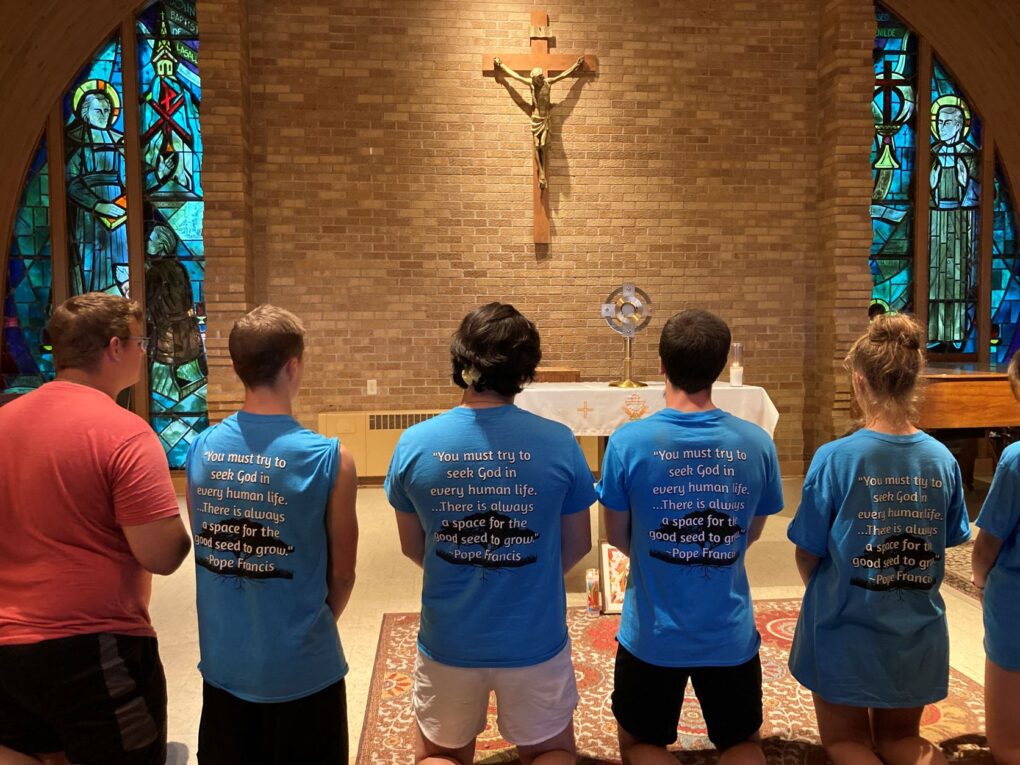
“WELCOME TO YOUR RETREAT!” Get early buy-in from the students. Typically, retreats build to a commitment at the end of the event. LEAD does the opposite. Get the youth onboard right away! Ask students to participate and not to anticipate or procrastinate. Young people respond to challenges when given purpose, relevance, and support.
ACCEPT WHERE THE KIDS ARE AT AND INVITE THEM INTO DEEPER CONNECTION. John’s DLITE team grew when challenged. John was a quiet team captain on DLITE, leading with Kateri, another quiet student leader. It was a young team, and they began with less cohesiveness and strength than most. On the first day, they whined and complained, not typical nor a part of early buy-in. On the second day, the team needed to climb an 11-foot wall. The staff worried about their ability to get up The Wall successfully.
BELIEVE IN THE YOUTH. At The Wall, John had the option to choose a difficulty level for the activity. He repeatedly asked for “hot and spicy.” There are three intensity levels for climbing The Wall.
1) Hard – Get your team over The Wall any way you can. The storyline might be “Your team is in North Korea and needs to get everyone over this wall into South Korea.”
2) Harder – Restrictions are put on team members. The storyline might be “Your team is in North Korea and needs to get everyone over this wall into South Korea. One of your team members is blind, one has a broken arm, and one is unconscious.”
3) Hot and spicy – More conditions are placed on the team. The storyline might be “Your team is in North Korea and must get everyone over this wall into South Korea. One member is blind, one has a broken arm, and one is unconscious. The military spotlight keeps sweeping over you, and if it catches someone, your entire team is caught and must start over.”
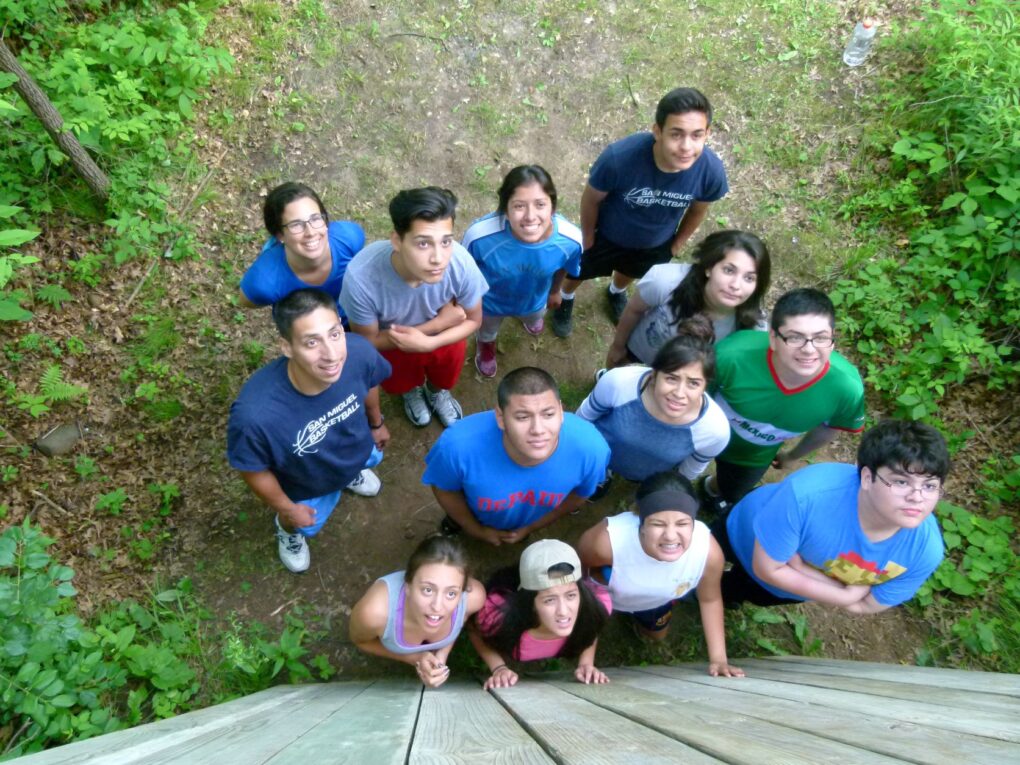
As team captain, John had been on DLITE before and understood The Wall. He believed his team could do it. John threw himself into the activity to make it happen. He sacrificed himself to get everyone to the top of The Wall. It was phenomenal! Through struggle, the DLITE team learned they were individually and together creative, capable, able to solve problems, and able to trust each other.
GET BUY-IN FROM EVERY TEAM MEMBER. Afterward, a different team emerged. The young people showed commitment to one another, personal confidence, resiliency, and willingness to serve. The young people knew they could do hard things. One of those young team members became an extraordinary program staff member for many years afterward. It started there. The building of confidence. The investment of respect.
Some teams come up with simple solutions to their challenges. “We got it!” And I say, “Excellent!” Then I invite them to go back to the activity and find another solution. With buy-in, they respond, “Ya!!!!!!” Some teams struggle even to find simple solutions. I used to bail them out with hints. Now I let them work through the process. Persevering through the struggle teaches life lessons.
Jerome Meeds, Executive Director
MAKE THE PROCESS OF GROWTH FUN. People do not naturally choose to be stretched and challenged. They need an environment where it is safe to try and to fail. Teamwork is fun, too. Sometimes the program counselors see hilarious solutions when DLITE teams push into the challenge.
David’s favorite memory of teambuilding is his team’s solution to the Ball Pass:
We had to pass the ball from one end of the row of people to the other end without dropping the ball, and we could only touch each body part once (one hand, one elbow, one knee, etc.). We also couldn’t walk or move from the spot we were on. Ben was on my team. Instead of passing the ball down the line, we passed Ben down the line. He held the ball and touched it to every person as he went.
David Maslow, Program Counselor
WASTE NO MOMENT. Time is valuable. One way to promote respect deals with time management. Too often, students flounder during free times on a retreat. Open spaces are rarely structured enough to keep the youth from devising crazy schemes or from disengaging. A LEAD or DLITE retreat utilizes all the time available, operating with a full schedule, no free time, and no wasted moments. The students never wait for staff. We’re not sure young people are accustomed to this respect of their time. No free time highlights the importance of every moment building toward and pointing to the encounter with Christ – the goal of our youth programs. Activities aim toward growth in life skills, tools for prayer life, and takeaways – relevant life lessons youth can take away from the retreat and live out in daily life.
EVALUATION, EVALUATION, EVALUATION. Respect requires honest feedback from the students. We trust the young people to help us improve the LEAD/DLITE program. We consider each evaluation and comment valuable, and many keep the program up to date and relevant. We expect more of the young people than they expect from themselves. It builds self-confidence and the thought, “If they think this of me, then maybe I can.” Just as important, youth agree to an early buy-in when we promise they can give honest feedback at the end of the program. By evaluating their experiences, the young people recognize their own personal impact on others. Listening to student feedback, we hear young people recognize their capacity to serve and their interior growth.

Life-changing transformation is possible when God’s grace is present. Young lives change through love and respect. Let us follow in the marvelous example of Saint John Baptist de La Salle, who inspired his Brothers of the Christian Schools when he said,

